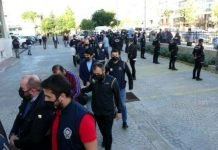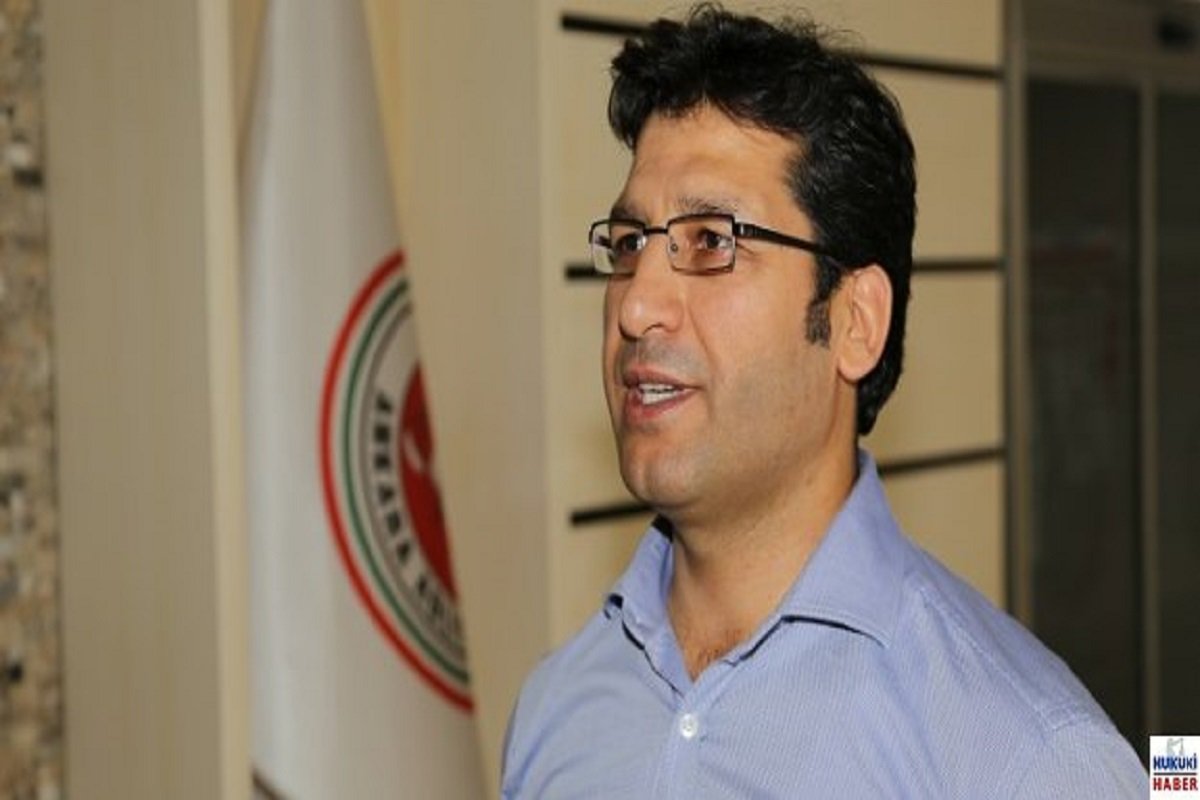Turkish prosecutors have over the past week ordered the detention of 183 people including teachers, lawyers, engineers, former civil servants, academics and active duty and former military officers due to alleged links to the Gülen movement, according to Turkish media reports.
The public prosecutor’s office in Konya on Friday issued detention warrants for 12 people including teachers, lawyers and engineers over alleged Gülen links. Police conducted operations across 10 provinces and detained 11 suspects.
The same office in two different investigations ordered the detention of 23 people on Friday, according to local media.
Turkish President Recep Tayyip Erdoğan has been targeting followers of the Gülen movement, inspired by Turkish Muslim cleric Fethullah Gülen, since the corruption investigations of December 17-25, 2013, which implicated then-Prime Minister Erdoğan, his family members and his inner circle.
Dismissing the investigations as a Gülenist coup and conspiracy against his government, Erdoğan designated the movement as a terrorist organization and began to target its members. He intensified the crackdown on the movement following an abortive putsch on July 15, 2016 that he accused Gülen of masterminding. Gülen and the movement strongly deny involvement in the coup attempt or any terrorist activity.
Seven former and active duty officers from Turkey’s air force were detained in police raids on Friday as part of an investigation in Ankara targeting alleged Gülen movement members. Detention warrants were issued by the Ankara Chief Public Prosecutor’s Office for eight people. The suspects are accused of using payphones to secretly communicate with their contacts in the Gülen movement.
The so-called “payphone investigations” are based on call records. The prosecutors assume that a member of the Gülen movement used the same payphone to call all his contacts consecutively. Based on that assumption, when an alleged member of the movement is found in call records, it is assumed that other numbers called right before or after that call also belong to people with Gülen links. Receiving calls from a payphone periodically is also considered a red flag.
The Diyarbakır Public Prosecutor’s Office on Wednesday issued detention warrants for eight women on accusations that they used the ByLock messaging app, once widely available online and considered by the government to be a tool of secret communication among supporters of the movement.
The UN Human Rights Council’s Working Group on Arbitrary Detention (WGAD) has repeatedly stated that arrest and conviction based on ByLock use in Turkey violated Articles 19, 21 and 22 of the International Covenant on Civil and Political Rights.
Detention warrants for 16 active duty and former military officers were also issued on Wednesday by the Bursa Chief Public Prosecutor’s Office in northwestern Turkey.
Also on Wednesday the public prosecutor’s office in Ankara ordered the detention of 16 teachers and academics over alleged Gülen links. Police conducted operations across four provinces to detain the suspects.
On Tuesday the same office in a separate investigation ordered the detention of 100 public and private sector employees due to alleged links to the movement. Police searched for the suspects across 41 Turkish provinces, according to Turkish media.
According to a statement from Turkish Interior Minister Süleyman Soylu on February 20, a total of 622,646 people have been the subject of investigation and 301,932 have been detained, while 96,000 others have been jailed due to alleged links to the Gülen movement since the failed coup. The minister said there are currently 25,467 people in Turkey’s prisons who were jailed on alleged links to the Gülen movement.
The Turkish government also removed more than 130,000 civil servants from their jobs on alleged Gülen links following the coup attempt.
In addition to the thousands who were jailed, scores of other Gülen movement followers had to flee Turkey to avoid the government crackdown.
















